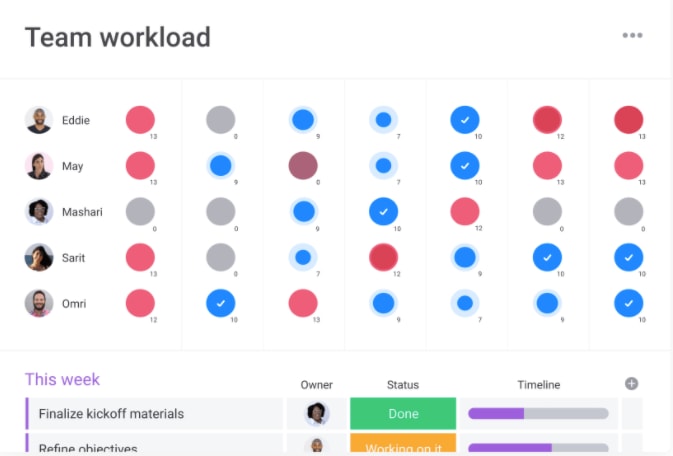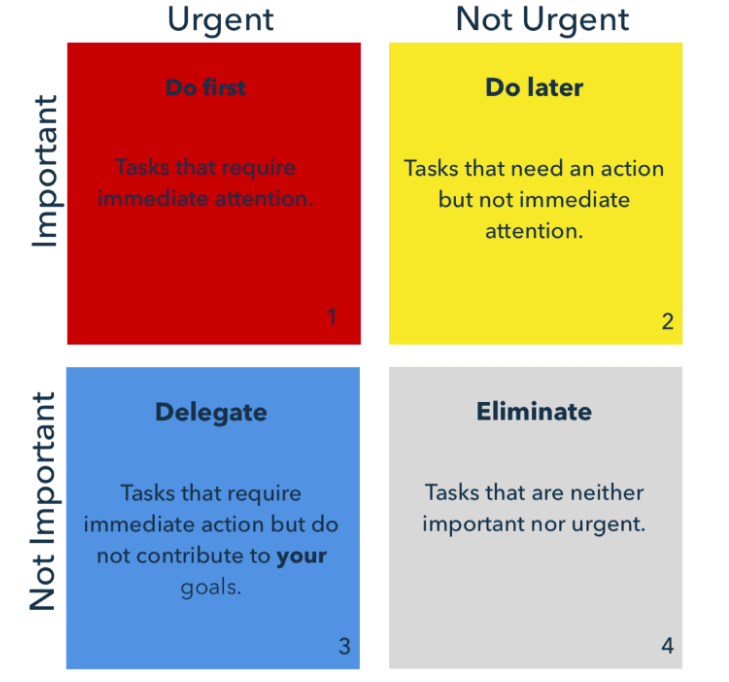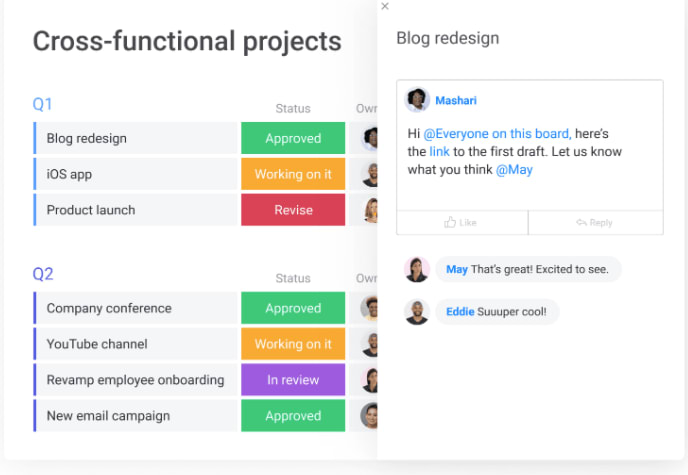Time. We never seem to have enough of it. But why is time management so important to us?
Well, we’re under increasing pressure at work. High workloads and too many competing priorities are causing many people to work overtime, which is impacting our mental health.
This can be even more pronounced if we’re juggling parenting or other caring responsibilities.
81% of employees feel they have to come in to work even when struggling with mental health. Only 6% feel like they can take time off that would benefit them.
So, can managing our time better actually allow us to be more productive or — dare we say it — happier?
In this article, we’ll give you a complete answer and share the 3 essential skills you need to focus on to be better at time management.
Why is time management important?
Time management skills are essential so that we can meet work and personal deadlines without becoming burnt out or overwhelmed.Specifically, time management is important for 5 key reasons:
1. Increasing productivity and efficiency
There is often a trade-off between the speed you can complete work with a deadline looming and its quality.
However, starting miles before a deadline may not be the answer either. While the quality is likely to be higher, the time spent ‘tinkering’ in order to perfect work is not exactly efficient.
Time management can help create a happy medium. Try breaking the work down into smaller tasks and setting completion dates for those pieces.
This provides the motivation of a deadline while reducing the poor quality associated with trying to do too much at once.
2. Gaining a sense of fulfillment
Efficiently accomplishing tasks to a high standard provides intrinsic reward.
Positive feedback from colleagues, managers, or customers can provide a sense of fulfillment for a job well done.
Completing work efficiently frees up time to pursue things that are enriching to your life. Not rushing from one task to another makes room for hobbies or volunteer activities to be added to your schedule.
3. Relieving stress
While the pressure of a tight deadline can feel motivating in the short term, frequently worrying about whether work will be completed on time can be stressful and leave you depleted.
52% of employees say work-related pressure is responsible for causing mental health symptoms at work.
Managing your time better helps reduce the stress associated with repeatedly feeling under pressure to deliver.
As noted above, it also frees up time for activities that reduce your stress level, such as exercise, socializing, or rest.
4. Improving self-discipline
Like any skill, getting better at managing your time requires practice. This, in turn, requires self-discipline.
Successfully improving time management builds your self-discipline, which can benefit other areas of your life.
Improved self-discipline means you’re more likely to set and achieve goals and build beneficial habits. Over time, it might not just be your productivity that sees a boost; it could also be your health, relationships, and finances.
5. Improving decision-making
When we’re stressed by an impending deadline, our bodies produce hormones that make us laser-focused on the task at hand. This is great for getting stuff done at the moment.
However, after a period of excessive stress, the body needs a chance to rest and recuperate. Over time without adequate rest, fatigue and brain fog set in, diminishing our ability to make good decisions.
Modern life can make it more challenging to create space for adequate rest. So, skills like time management that reduce our stress in the first place are important for good health and clear decision-making.
This is worth talking about if you need to think clearly in your job, yet you’re becoming overwhelmed by your workload.
A Work OS like monday.com makes visualizing your workload simple with its intuitive functionality.
Line managers can monitor how work is spread across their team and easily move tasks around to spread the load, preventing boredom and burnout.
How do I get better at time management?
Now that you’re convinced managing time is important, you’re probably going to want to know how to do it better.
But, improving your time management actually depends on getting better at several other skills.
Prioritizing
The first step in prioritizing effectively is knowing what you’ve got on your plate. Using a task tracker can help you visualize everything that needs to be done along with due dates.
But don’t stop there. As work comes in, assign it a priority. A simple way to do that is to judge each piece of work on 2 criteria: importance and urgency.
Creating a simple importance vs. urgency matrix allows you to assess which tasks need the most attention and which can be ignored or delegated.
This matrix — known as the Eisenhower matrix after its creator, the 34th President of the United States, Dwight D.Eisenhower — suggests how you should deal with the 4 types of tasks.
Prioritizing can sometimes feel difficult when you’re given tasks where someone else has set the deadline or level of importance.
It is always worth noting whether a deadline is flexible. You can then work with your line manager to prioritize its importance against the other tasks on your list.
Sometimes the highest value tasks might not be the most interesting, and it can be challenging to focus on those tasks above other, more exciting work. The skill of committing, which we discuss shortly, can help.
monday.com makes it easy to prioritize your tasks. You can color-code the task’s status so you can clearly see what needs tackling next.
You can also set automation recipes so that lower-value administrative work can be checked off your to-do list with minimal effort.
Delegating
Delegating is important because it frees up your time and builds capability in others.
Delegating can feel challenging as, at first, it seems like layering more work on your already busy schedule. Plus, you have to trust others to get the job done, on time, and to a high standard.
Play the long game on this. Developing others is rewarding; plus, over time, delegating tasks will free up your schedule and allow you to focus on tasks that really need your input.
monday.com makes delegating simple. It’s easy to view, share, and annotate documents, and reassign task ownership.
Plus, in-platform collaboration and conversation history mean work is always done in context, so you save time on explanations.
Committing
Once you’ve prioritized the tasks you’re going to tackle, you need to knuckle down and get them done. Committing to tasks can sometimes feel difficult as we’re bombarded with distractions.
Procrastination is caused by 5 main things:
- Not finding the task motivating or meaningful
- Lacking the skills to complete the job
- Perfectionist tendencies or fear of failure
- Feeling overwhelmed by the volume of work required
- Lacking skills in planning and organizing work
This article has hopefully helped with the final 2 but, if the others are impacting your ability to effectively manage your time, seek support.
Your colleagues or manager may be able to help you find meaning in the task or offer feedback or development activities to boost your skills and confidence.
Ultimately, while time management can help organize and plan your current workload effectively, it can’t reduce it if you have too much.
Make sure to engage your manager if prioritizing and delegating don’t result in a manageable workload.
Common questions about effective time management
As you can see, time management isn’t really about managing time at all, but managing ourselves. So what else do we need to know?
What time management techniques might help me?
There are a number of time management techniques that might help improve your productivity.
These include:
- Time batching
- Time blocking techniques, such as the Pomodoro method
- Establishing habits that ‘trigger’ you to switch into work mode
Whichever method you choose, monday.com can help you plan, organize, and prioritize your work effectively.
How should I plan out my day?
There’s no best way to plan out your daily schedule.
When thinking about the ideal plan for your day, you’ll need to take into consideration your preferences and constraints.
Maybe you know you’re a night owl who is most productive working later in the afternoon or into the evening. Or maybe you’re a lark who prefers to tackle things earlier when your energy level is highest.
Sometimes practicalities — such as a 9–5 job or your children’s routine — may constrain how you can plan your day.
If your workday reality is counter to your preference, a productivity technique called “Eat that frog” may help.
Taking inspiration from a Mark Twain quote, this technique basically involves tackling the most challenging thing on your to-do list first thing. No actual frogs required.
How do I know if I’m managing my time effectively?
If your work is completed and you’re not burnt out, you’re managing your time effectively.
monday.com can help you monitor task progress and deadlines for you and your team. So you can see at a glance if you’re on track or if you need to reprioritize or delegate work.
Work smarter, not harder with time management
In this article, we’ve covered why time management is important, the key skills you need to manage your time effectively, and answered some common questions about effective time management.
Remember, good time management comes from 2 elements: managing work and managing yourself.
Take the time to organize and plan your work effectively and create good habits that boost your productivity.
Why not get started today with our daily task tracker?







